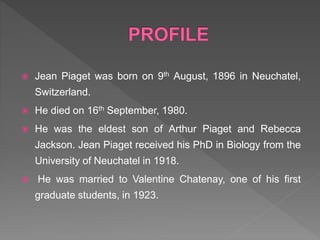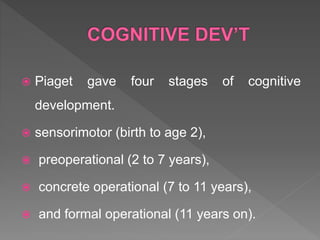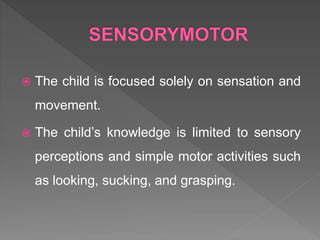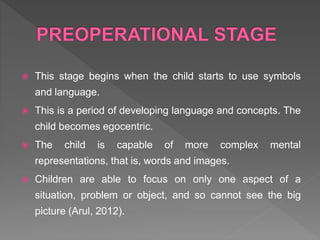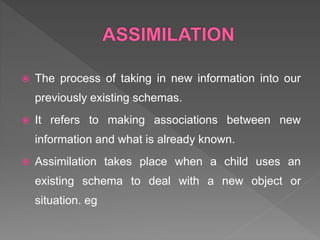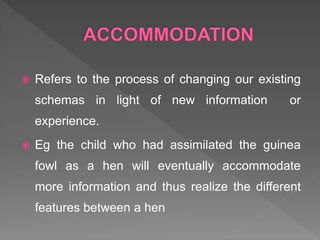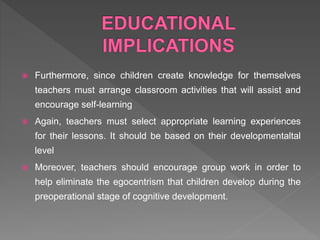Jean Piaget (1896-1980) was a Swiss psychologist known for his theory of cognitive development, which he called 'genetic epistemology.' He proposed four stages of cognitive development: sensorimotor, preoperational, concrete operational, and formal operational, emphasizing that children's cognitive structures evolve as they grow. Piaget stressed the importance of teachers recognizing developmental stages in students and creating learning activities that promote self-learning and cooperation to overcome egocentrism.

